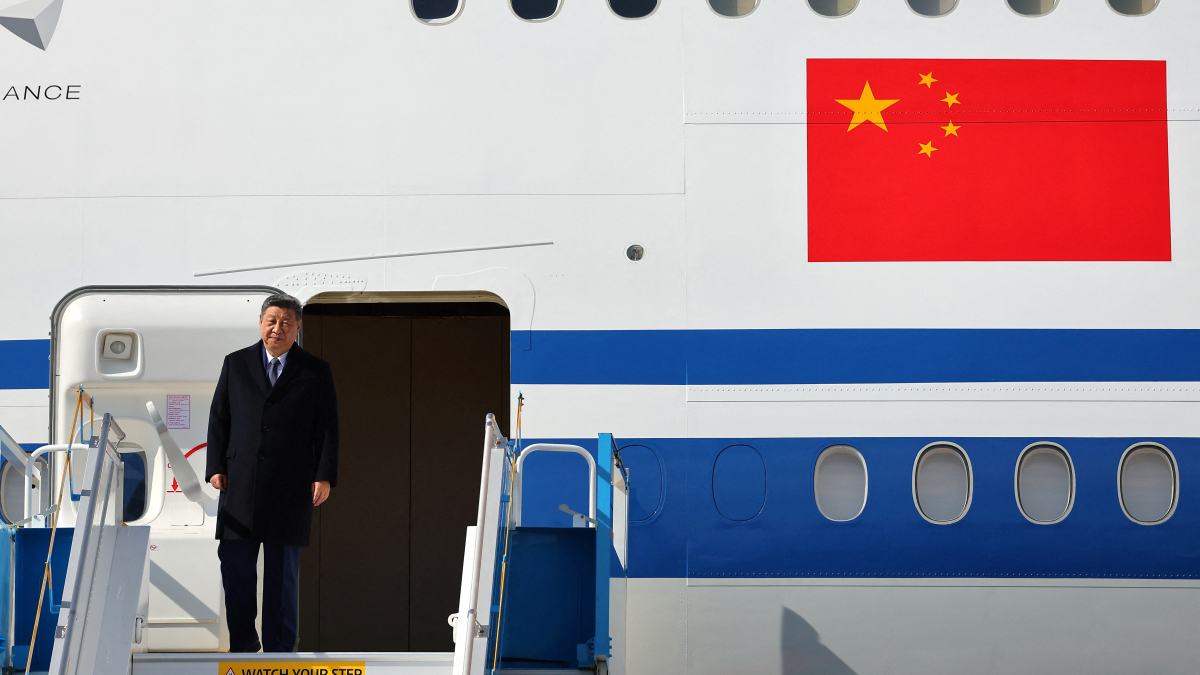Trump says additional talks with Iran expected on Friday
Tensions between the U.S. and Iran are escalating, with Washington ordering a significant military build-up in the region and multiple countries evacu...

China’s President Xi Jinping took centre stage at an annual gathering of Pacific Rim leaders in South Korea on Friday, expected to hold talks with Canadian, Japanese and Thai counterparts after securing a fragile trade truce with U.S. President Donald Trump.
That agreement, struck just before Trump left South Korea, skipping the main two-day Asia-Pacific Economic Cooperation summit, will suspend further curbs on China’s exports of rare earths that threatened to jam up global supply chains.
Bolstering supply chains and reducing trade barriers is a key focus of the talks, hosted in the historic town of Gyeongju. Yet decisions made at the 21-member economic club are non-binding, and finding consensus has been increasingly difficult amid geopolitical strains.
“Changes unseen in a century are accelerating across the world,” Xi told the assembled leaders at the closed-door opening session on Friday morning, according to China’s foreign ministry.
“The rougher the seas, the more we must pull together,” he added, calling for protection of the multilateral trading system and deeper economic cooperation.
U.S. Treasury Secretary Scott Bessent stood in for the absent Trump.
Xi set to meet Japan's new hawkish leader
With the leader of the world’s biggest economy absent, attention turns to Xi, who is expected to hold his first talks with Japan’s newly elected leader Sanae Takaichi.
The leaders are expected to meet on Friday, sources familiar with the matter said. Before departing for the summit on Thursday, Takaichi told reporters that arrangements were underway to meet Xi.
While relations between the historic rivals have been on a sounder footing in recent years, Takaichi’s surprise elevation to become Japan’s first female leader may strain ties due to her nationalistic views and hawkish security policies.
One of her first acts since taking office last week was to accelerate a military build-up aimed at deterring the territorial ambitions of an increasingly assertive China in East Asia. Japan also hosts the biggest concentration of U.S. military abroad.
The detention of Japanese nationals in China and Beijing’s import restrictions on Japanese beef, seafood and agricultural products are also likely to be among sensitive issues on the agenda.
Canada seeks to restart China engagement
Canadian Prime Minister Mark Carney will meet Xi at 4 p.m. (0700 GMT), his office said, aiming to restart broad engagement with China after years of poor relations.
Embroiled in a bitter trade war with its biggest trading partner, the United States, Canada is aiming to wean itself off that dependence and seek new markets. China remains its second-biggest trading partner.
Under the leadership of Justin Trudeau, Canadians were detained and executed by the Chinese government, and Canadian authorities concluded that China interfered in at least two federal elections. Xi also publicly scolded Trudeau, alleging he leaked their discussions to the press.
China announced preliminary anti-dumping duties on Canadian canola imports in August, a year after Canada said it would levy a 100% tariff on imports of Chinese electric vehicles. Senior officials from both sides met to discuss those issues earlier this month, but gave no indication of any looming breakthrough.
Thailand joins APEC diplomacy
Thai Prime Minister Anutin Charnvirakul is also due to meet Xi in the afternoon, Bangkok said, fresh from signing an enhanced ceasefire deal with neighbouring Cambodia on Sunday overseen by Trump.
The U.S. president has repeatedly touted himself as a global peace broker. Xi told Trump on Thursday that China also played a major role in advocating for dialogue and reconciliation on various pressing matters.
Tensions between the U.S. and Iran are escalating, with Washington ordering a significant military build-up in the region and multiple countries evacuating diplomatic staff amid fears of further instability.
The death toll from heavy rains and flooding in Brazil’s Minas Gerais state has risen to 46, authorities said, with 21 people still reported missing. The storms triggered landslides and widespread flooding, displacing thousands across Juiz de Fora and Uba.
The situation in Cuba was heating up and called for restraint following a deadly incident involving a Florida-registered speedboat off the coast of the Caribbean island, the Kremlin said on Thursday (26 February).
Pakistani air strikes hit a weapons depot on the western outskirts of Kabul overnight, triggering hours of secondary explosions that rattled homes across the Afghan capital and left residents fearing further violence.
Russian President Vladimir Putin’s special envoy, Kirill Dmitriev, arrived in Geneva and may hold talks with U.S. officials, according to the RIA news agency.
Tensions between the U.S. and Iran are escalating, with Washington ordering a significant military build-up in the region and multiple countries evacuating diplomatic staff amid fears of further instability.
Two people were killed and around 40 injured when a tram derailed in central Milan on Friday (27 Februrary), a spokesperson for local firefighters said.
Colombia’s commerce minister, Diana Marcela Morales, has said she will propose raising tariffs on certain Ecuadorian goods from 30% to 50%, as a trade dispute between the neighbouring countries intensifies.
Former U.S. President Bill Clinton said on Friday (27 February) that he had no knowledge of the crimes committed by Jeffrey Epstein and would not have flown on the late convicted sex offender’s plane had he had any inkling of his activities.
Some of Iran's most highly enriched uranium, close to weapons grade, was stored in an underground area of its nuclear site in Isfahan, the UN nuclear watchdog said in a confidential report sent to member states on Friday (27 February).
You can download the AnewZ application from Play Store and the App Store.

What is your opinion on this topic?
Leave the first comment